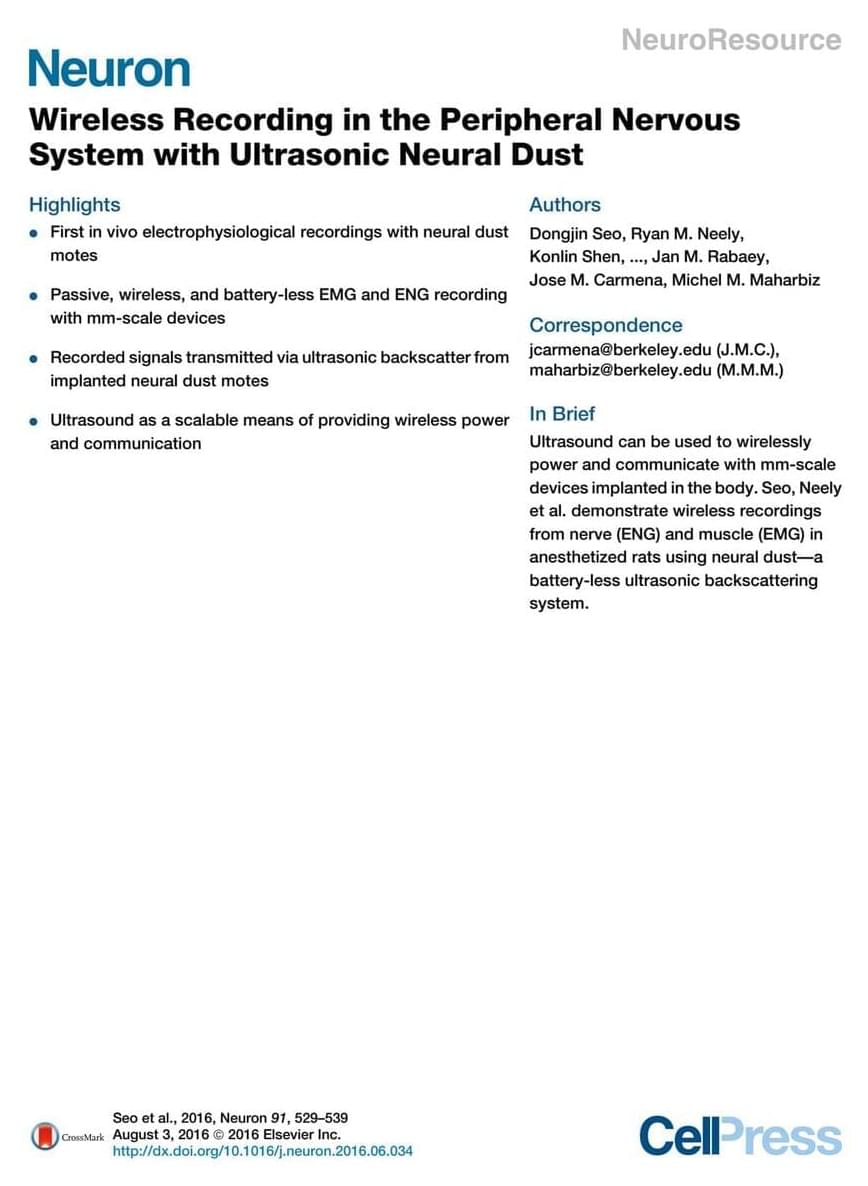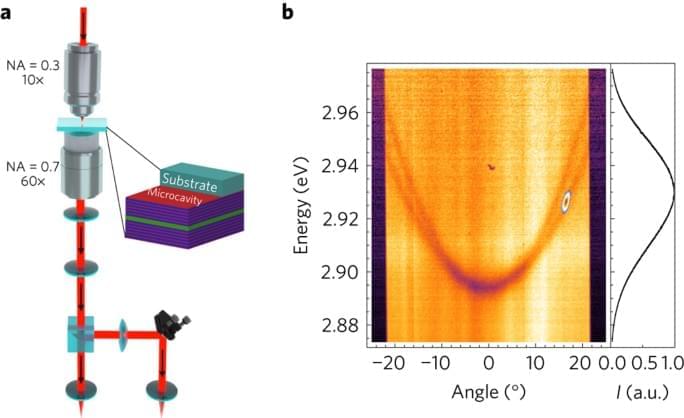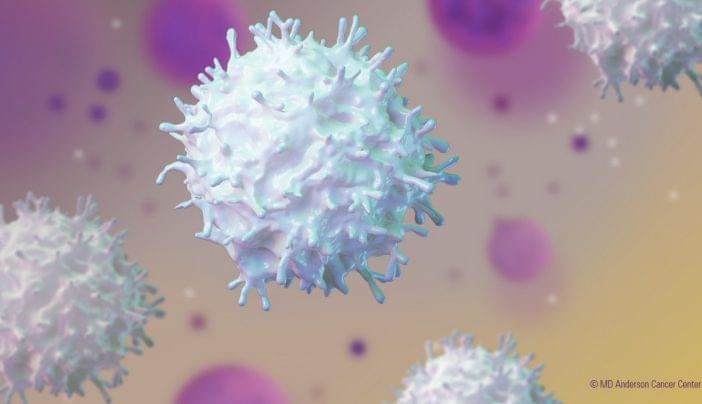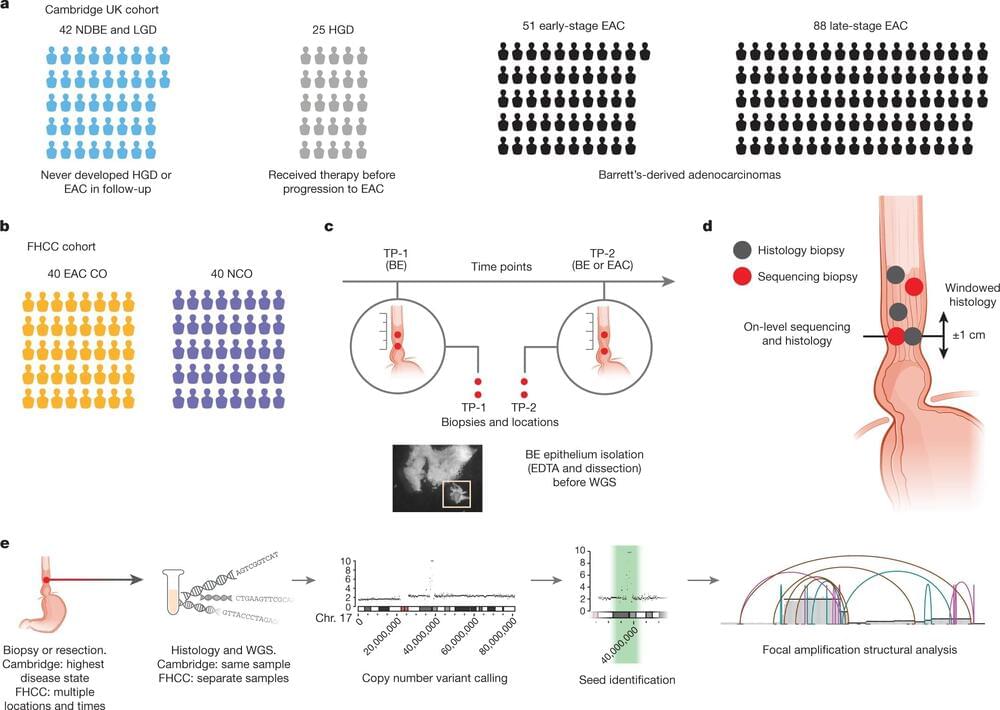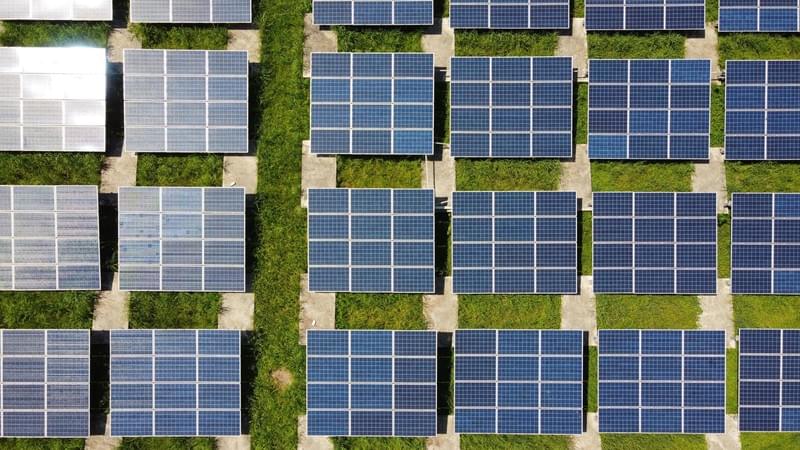Dropbox is a free service that lets you bring your photos, docs, and videos anywhere and share them easily. Never email yourself a file again!
Page 2996
Apr 18, 2023
Spontaneous Regression of Cancer with Fasting
Posted by Paul Battista in categories: biotech/medical, health

How can we increase natural killer cell activity naturally? Exercise can do it, unless, apparently, you’re eating a high-fat diet. Those randomized to undergo an exercise training program on a high-fat diet actually suffered a decline in natural killer cell activity, suggesting training on a high-fat diet is detrimental to the immune system. Eating lots of contaminated fatty fish may also adversely affect natural killer cell levels. But put people on a low-fat diet, and you can dramatically increase natural killer cell activity within a matter of months by about 50 percent, suggesting that dietary fat might increase the formation of cancer by depressing the tumor surveillance capacity of the immune system.
The bottom line in terms of fasting is that, at present, long-term fasting in cancer treatment is supported only by some case reports; so, more research is desperately needed. Sadly, there is currently no clinical research evaluating the effects of water-only fasting and a whole food, plant-based diet on follicular lymphoma in humans. Long-term fasting is certainly not without risk. In this case, a guy opted to try a 60-day fast instead of chemotherapy for non-Hodgkin lymphoma, ending up hospitalized in a coma and respiratory failure because of Wernicke encephalopathy, a life-threatening neurological emergency caused by thiamine deficiency. But starting on a healthier diet seems like a win-win no-brainer. Just putting people on a plant-based, whole foods, sugar-oil-salt-free diet, with or without fasting, is sometimes sufficient to induce an intense healing response.
Continue reading “Spontaneous Regression of Cancer with Fasting” »
Apr 18, 2023
Room-temperature superfluidity in a polariton condensate Physics
Posted by Quinn Sena in categories: energy, information science, mapping, mathematics, quantum physics, space
face_with_colon_three year 2017.
First observed in liquid helium below the lambda point, superfluidity manifests itself in a number of fascinating ways. In the superfluid phase, helium can creep up along the walls of a container, boil without bubbles, or even flow without friction around obstacles. As early as 1938, Fritz London suggested a link between superfluidity and Bose–Einstein condensation (BEC)3. Indeed, superfluidity is now known to be related to the finite amount of energy needed to create collective excitations in the quantum liquid4,5,6,7, and the link proposed by London was further evidenced by the observation of superfluidity in ultracold atomic BECs1,8. A quantitative description is given by the Gross–Pitaevskii (GP) equation9,10 (see Methods) and the perturbation theory for elementary excitations developed by Bogoliubov11. First derived for atomic condensates, this theory has since been successfully applied to a variety of systems, and the mathematical framework of the GP equation naturally leads to important analogies between BEC and nonlinear optics12,13,14. Recently, it has been extended to include condensates out of thermal equilibrium, like those composed of interacting photons or bosonic quasiparticles such as microcavity exciton-polaritons and magnons14,15. In particular, for exciton-polaritons, the observation of many-body effects related to condensation and superfluidity such as the excitation of quantized vortices, the formation of metastable currents and the suppression of scattering from potential barriers2,16,17,18,19,20 have shown the rich phenomenology that exists within non-equilibrium condensates. Polaritons are confined to two dimensions and the reduced dimensionality introduces an additional element of interest for the topological ordering mechanism leading to condensation, as recently evidenced in ref. 21. However, until now, such phenomena have mainly been observed in microcavities embedding quantum wells of III–V or II–VI semiconductors. As a result, experiments must be performed at low temperatures (below ∼ 20 K), beyond which excitons autoionize. This is a consequence of the low binding energy typical of Wannier–Mott excitons. Frenkel excitons, which are characteristic of organic semiconductors, possess large binding energies that readily allow for strong light–matter coupling and the formation of polaritons at room temperature. Remarkably, in spite of weaker interactions as compared to inorganic polaritons22, condensation and the spontaneous formation of vortices have also been observed in organic microcavities23,24,25. However, the small polariton–polariton interaction constants, structural inhomogeneity and short lifetimes in these structures have until now prevented the observation of behaviour directly related to the quantum fluid dynamics (such as superfluidity). In this work, we show that superfluidity can indeed be achieved at room temperature and this is, in part, a result of the much larger polariton densities attainable in organic microcavities, which compensate for their weaker nonlinearities.
Our sample consists of an optical microcavity composed of two dielectric mirrors surrounding a thin film of 2,7-Bis[9,9-di(4-methylphenyl)-fluoren-2-yl]-9,9-di(4-methylphenyl)fluorene (TDAF) organic molecules. Light–matter interaction in this system is so strong that it leads to the formation of hybrid light–matter modes (polaritons), with a Rabi energy 2 ΩR ∼ 0.6 eV. A similar structure has been used previously to demonstrate polariton condensation under high-energy non-resonant excitation24. Upon resonant excitation, it allows for the injection and flow of polaritons with a well-defined density, polarization and group velocity.
Continue reading “Room-temperature superfluidity in a polariton condensate Physics” »
Apr 18, 2023
What’s new in CAR T cell therapy? Solid tumor advances
Posted by Shubham Ghosh Roy in category: biotech/medical
CAR T cell therapy has been a major advance for treating leukemia, lymphoma and multiple myeloma. Now, it’s showing promise for solid tumors, including lung cancer, kidney cancer and bone cancer.
Apr 18, 2023
Melanoma study finds mRNA vaccine combined with standard treatment could reduce recurrence
Posted by Genevieve Klien in category: biotech/medical
In a stage two clinical trial, researchers found that adding an mRNA cancer vaccine to standard treatment reduced the chances for melanoma recurrence or death by 44 percent. NBC News’ Kristen Dahlgren spoke to one of the study’s doctors and a patient for more details.
Apr 18, 2023
Elon Musk says he ‘learned a lot today’ after cancelling SpaceX’s giant rocket launch at last minute
Posted by Genevieve Klien in categories: Elon Musk, satellites
No people or satellites were aboard. There won’t be another try until at least Wednesday.
“Learned a lot today,” Musk tweeted after the flight was postponed.
The company plans to use Starship to send people and cargo to the moon and, ultimately, Mars.
Apr 18, 2023
Extrachromosomal DNA detection in Barrett’s esophagus linked to cancer development
Posted by Genevieve Klien in category: biotech/medical
A multi-institution study that included researchers from Stanford University, the University of California at San Diego, the University of Cambridge, the Fred Hutchinson Cancer Center and others has looked into the development of extrachromosomal DNA in patients with esophageal adenocarcinoma or Barrett’s esophagus.
In the paper, “Extrachromosomal DNA in the cancerous transformation of Barrett’s oesophagus,” published in Nature, researchers identify previously unknown aspects of extrachromosomal DNA presence and their potential role in Barrett’s esophagus. David H. Wang has published a News & Views piece in the same journal discussing the study.
Barrett’s esophagus is a pre-cancerous tissue abnormality that affects about 1.6% of the U.S. population. The condition is mostly harmless, defined by cells in the esophagus lining that become more intestinal-like and is frequently associated with heartburn and acid regurgitation.
Apr 18, 2023
Stop Treating AI Models Like People
Posted by Kelvin Dafiaghor in category: robotics/AI
No, they haven’t decided to teach themselves anything, they don’t love you back, and they still aren’t even a little bit sentient.
Apr 18, 2023
Solar-plus-storage is key to future-proofing the energy supply
Posted by Shailesh Prasad in categories: futurism, security
The ‘power couple’ of solar-plus-storage, facilitated by AIoT, will be vital to safeguarding countries’ energy security and reducing geopolitical risks.
Apr 18, 2023
Lactobacillus probiotics improve vaginal health in asymptomatic women
Posted by Shubham Ghosh Roy in category: health
This study investigated the effect of administering Lactobacillus probiotics (LBPs) on vaginal dysbiosis in asymptomatic women. The results showed that oral intake of LBPs improved vaginal health in women with high Nugent scores.
